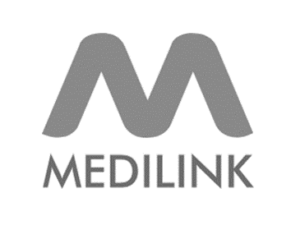HealthTech advances in psychotherapy in 2025 primarily revolve around AI-driven tools, digital platforms, and immersive technologies like virtual reality (VR) to enhance accessibility, personalization, and efficacy of mental health treatments.
Here 4 actual main topics helping in Psychotherapy:
- AI in Psychotherapy
- Digital Mental Health Platforms
- Virtual Reality and Immersive Therapy
- Integration and Future Perspectives
These advances collectively are transforming psychotherapy by making it safer, more engaging, personalized, and accessible.
AI in Psychotherapy
Artificial intelligence is being integrated as virtual therapists and chatbots that provide interactive, 24/7 psychological support. These AI systems analyze speech, facial expressions, and text to detect mood changes and guide cognitive behavioral therapy (CBT) or other interventions. AI also assists therapists by analyzing session transcripts for intervention accuracy and holds potential for large-scale clinical trials of therapy techniques using advanced data analysis.
Compare AI virtual therapists versus human therapists in outcomes
AI virtual therapists and human therapists show both converging and diverging outcomes in psychotherapy.
Effectiveness in Symptom Reduction
Recent clinical trials demonstrate that AI therapy can achieve comparable outcomes to human therapists in reducing symptoms of anxiety and depression. For example, an AI therapy chatbot study found a 51% reduction in depression symptoms and a 31% reduction in anxiety symptoms, mirroring traditional cognitive therapy results but in a shorter timeframe.
Available 24/7, convenient outside traditional office hours
Cost-effective with no scheduling delays or insurance hurdles
Provide consistent, structured cognitive behavioral therapy (CBT) techniques
Highly accessible for mild to moderate conditions and initial therapy engagement.
Superior in emotional connection, empathy, and therapeutic alliance
Better at collaboration, guided discovery, and adaptive problem-solving in real time
Essential for complex trauma, crisis intervention, cultural competence, and nuanced clinical judgment
The human relationship itself contributes to accountability and advocacy within healthcare systems.
Therapists using AI augmentation report improved patient attendance (67% increase) and symptom improvements (3-4 times better) compared to usual treatment, suggesting AI serves as a powerful tool for enhancing human-delivered therapy.
Summary Comparison
| Aspect | AI Virtual Therapists | Human Therapists |
| Symptom Reduction | Comparable for mild/moderate anxiety, depression | High effectiveness, especially for complex cases |
| Availability | 24/7 access | Scheduled sessions only |
| Cost | Lower, no insurance needed | Higher, insurance often required |
| Emotional Connection | Limited, less empathic | Strong, critical for therapeutic alliance |
| Crisis & Complex Trauma | Not suitable | Essential role |
| Adaptive Problem Solving | Limited real-time adaptation | High adaptability |
| Patient Engagement | High for immediate and ongoing self-help | Better for sustained, long-term therapy |
In conclusion, while AI virtual therapists offer effective, accessible, and affordable care particularly for common conditions, human therapists remain indispensable for deeper emotional support, complex diagnostics, and crisis management. The best outcomes appear when AI supports and augments human therapy rather than replaces it.
Digital Mental Health Platforms
Teletherapy has expanded access to psychotherapy by enabling remote sessions via video calls and messaging platforms. Digital mental health platforms offer personalized therapy plans with AI-driven assessments and guided mindfulness practices. These tools reduce stigma, improve scheduling flexibility, and serve underserved or remote populations.
HealthTech advances in Digital Mental Health Platforms
Recent advances in digital mental health platforms in 2025 focus on enhanced personalization, AI integration, and holistic approaches to mental health care. The market is growing rapidly, driven by technologies such as remote patient monitoring with wearables, AI-driven clinical decision support systems, and crisis-ready platforms that can adapt during emergencies.
Key innovations include AI-powered therapy tools that improve treatment adherence and clinical documentation, virtual reality therapies, and integrations with electronic health records (EHRs) to improve coordination with broader healthcare systems. There is also increasing emphasis on ethical AI use and protecting user data privacy.
Notable trends are the rise of personalized therapy plans supported by real-time data from wearables, digital therapeutics such as CBT apps, and AI-enhanced teletherapy that shows improved depression and anxiety outcomes. Platforms are advancing toward comprehensive solutions that combine mental and physical health monitoring for a more holistic treatment approach. Furthermore, mental health start-ups are building interoperable systems that augment clinician effectiveness and patient self-management through AI-driven insights and remote monitoring capabilities.
In summary, digital mental health platforms in 2025 are characterized by AI integration, personalization, interoperability, and expanded digital therapeutic options to enhance access, engagement, and treatment efficacy in mental health care.
Virtual Reality and Immersive Therapy
VR therapy is gaining adoption for treatment of PTSD, phobias, anxiety, and trauma by creating controlled environments for exposure therapy and mindfulness. Ongoing VR advancements, often combined with biofeedback, make this immersive approach an increasingly mainstream treatment option in psychotherapy.
HealthTech advances in Psychotherapy with Virtual Reality and Immersive Therapy
HealthTech has made significant advances in psychotherapy using Virtual Reality (VR) and immersive therapy by creating controlled, safe, and customizable environments for treating mental health conditions such as anxiety, phobias, PTSD, and substance use disorders.
VR enables exposure therapy where patients can confront fears virtually, practicing coping skills without real-world risks. Integration of VR with cognitive behavioral therapy (CBT) enhances treatment by making abstract concepts concrete and allowing therapists to guide patients in real-time within relevant virtual scenarios, resulting in improved outcomes compared to CBT alone.
Recent advances include VR environments designed for relaxation and mindfulness that aid stress management, as well as VR-based diagnostic tools allowing therapists to observe patients’ reactions in virtual settings for more objective assessments. The emergence of multisensory VR, combining visual, audio, and tactile feedback, further enhances therapeutic realism and effectiveness.
Artificial intelligence (AI) integration is a game changer, with AI-powered virtual avatars enabling more natural social interactions beneficial for social anxiety treatment. AI dynamically personalizes therapy by analyzing patient responses and adjusting protocols, potentially reducing therapist workload. Home-based VR therapy, facilitated by consumer VR headsets and telehealth platforms, allows patients to practice therapy remotely with therapist monitoring, increasing accessibility and adherence.
Current applications are broad, covering anxiety disorders, panic disorders, substance use, PTSD, depression, ADHD, and psychotic symptoms. VR-CBT (cognitive behavioral therapy) combined with VR exposure offers an efficient, personalized, and promising approach for clinical settings. Although AI integration and technical standardization are ongoing challenges, VR in psychotherapy is evolving rapidly to become more immersive, accessible, and effective, enhancing mental health treatment in innovative ways.
In summary, advances in HealthTech employing VR and immersive therapy in psychotherapy include:
- Controlled, immersive exposure therapy for anxiety, phobias, PTSD, and substance use
- Enhanced CBT experiences within virtual environments
- Multisensory VR for improved realism and outcomes
- AI-driven personalization and interactive virtual therapists
- Home-based VR therapy for remote patient access and monitoring
- VR for diagnostic and assessment purposes, improving accuracy
Integration and Future Perspectives
Blended therapy approaches combine face-to-face and technology-facilitated methods, ensuring ethical use and preserving human oversight. AI’s future roles might include automating administrative tasks and eventually leading fully autonomous therapy sessions under regulation and safety protocols.
In summary, 2025’s HealthTech advances in psychotherapy leverage AI for personalized, scalable behavioral health interventions, digital platforms for accessible and flexible care, and VR for immersive therapeutic experiences, all contributing to more effective and patient-centered mental health treatment.
Related interesting Links
https://buckeyerecoverynetwork.com/innovations-in-mental-health-technology-for-2025
https://hai.stanford.edu/news/blueprint-using-ai-psychotherapy
https://pmc.ncbi.nlm.nih.gov/articles/PMC11681265
https://pmc.ncbi.nlm.nih.gov/articles/PMC12314210
https://www.worthymindpractice.com/blog/top-mental-health-innovations-to-watch-in-2025
https://www.abhasa.in/articles/mental-health-trends-2025
https://paloaltou.edu/resources/translating-research-into-practice-blog/digital-therapy-resources
https://www.apa.org/monitor/2025/01/trends-technology-shaping-practice
https://premierscience.com/wp-content/uploads/2025/05/pjp-25-765.pdf
https://hai.stanford.edu/news/exploring-the-dangers-of-ai-in-mental-health-care
https://www.jmir.org/2025/1/e60435
https://mental.jmir.org/2025/1/e69709
https://pmc.ncbi.nlm.nih.gov/articles/PMC11560757
https://anshadameenza.com/blog/health/2025-05-07-mental-health-digital-age
https://pmc.ncbi.nlm.nih.gov/articles/PMC12110772
https://www.worthymindpractice.com/blog/top-mental-health-innovations-to-watch-in-2025
https://pmc.ncbi.nlm.nih.gov/articles/PMC12079407
https://www.sciencedirect.com/science/article/pii/S2949916X24000525
https://mentalhealthinnovations.org
https://pmc.ncbi.nlm.nih.gov/articles/PMC7890581
https://www.frontiersin.org/journals/psychiatry/articles/10.3389/fpsyt.2024.1480788/full
https://pubmed.ncbi.nlm.nih.gov/40483725
https://essopenarchive.org/users/902848/articles/1277947/download_latex
https://www.apa.org/monitor/2025/10/virtual-reality-therapy
https://www.sciencedirect.com/science/article/pii/S2352250X21000142
https://www.frontiersin.org/journals/virtual-reality/articles/10.3389/frvir.2025.1595326/full












